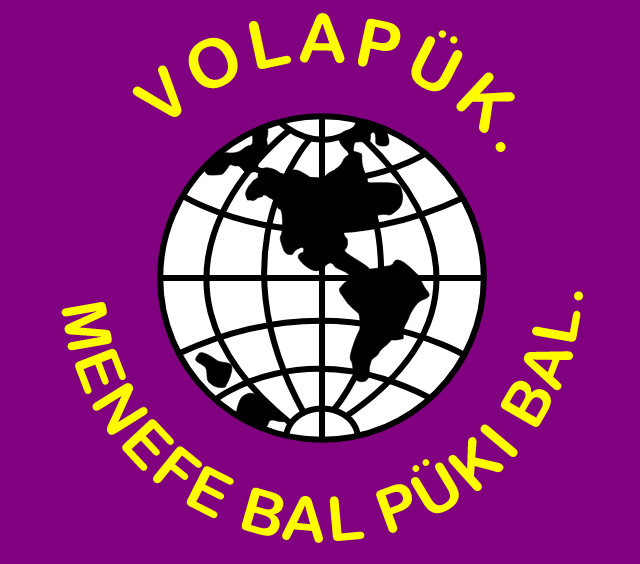Apparently the language was popular among early 20th century socialist movements because it was of an international character and therefore not associated with any nationality and its use by international socialist organisations wouldn’t show favour to any particular country. It was banned in Nazi Germany and other fascist states because of its association with the left wing, with anti-nationalism, and because its creator was Jewish. It has mostly languished since then but still has around 2 million speakers with about 1,000 native speakers.
I think its a good idea in theory but sadly it is absolutly not a Universal language, it is an european language (i tried learning it and from my limited experience , its a mix of french/spanich/italian/english with a little bit of german.) So i dont really like it because of the racist implication that European language are the most important and are "Universal ".
I’m currently learning it. I like the concept, and no other conlang/auxlang has become as widely spoken or treated as seriously as Esperanto. There are actually children who are native speakers, as in Esperanto is their first language, no other conlang can claim that.
However, as many users here have pointed out, it has problems. It’s very Euro-centric. So while it is easy for romance language speakers to pick up, if you are from a different language family, it’s no picnic.
There is also the issue of relevance. Esperanto has a fairly active online community, you can pretty easily find Discord servers and forums with several hundred to 1000+ active speakers from all over the world.
If you are lucky, there are local clubs and groups that meet up in person and speak Esperanto to each other.
Esperanto has also been shown, at least in children, to aid in learning a second language. Learning Esperanto helps you get used to the process of learning a language in general, and basically gives it to you in easy mode.
But if your goal to learn a second language is utility, then Esperanto almost certainly isn’t a good choice. For instance, I live in the US, and not in a region that has a high Hispanic population. That being said, I still encounter 3-5 people a month who are Spanish speakers. So even for me, learning to speak conversational Spanish would be much more useful as a second language than Esperanto.
That’s actually my long term plan, to start with Esperanto because I really struggle with learning languages, even Spanish has been too tough for me. But Esperanto has made it easier so far, and it’s fun.
Ultimately, Esperanto would have been a far better world language than English, which annoyingly has become the de-facto world language, and I say that as a native English speaker.
I don’t see anything like Esperanto arising anytime soon, if ever. If you think it’s cool, learn it, you’ll at least learn how to learn a foreign language better and you’ll maybe find some new friends online, can’t complain about that.
I’m learning it too! With my husband - we even had an oath in esperanto on our wedding ;)
I really appreciate the simplicity of Esperanto - it has no exceptions and easy suffixes and no grammatical gender.
By the way, I wonder how and why there are many esperanto speakers in China and Japan (since it’s euro-centric).
Saluton!
Saluton! That’s really cool! And yeah, I’ve heard the same, not sure about that.
My opinion is this: who can I speak Esperanto with?
…
Exactly.
The problem with Esperanto is that languages don’t work like that: they’re not created out of thin air. They exist because people speak them and they come into existance from other languages that get distorted beyond recognition by the people who misuse them.
No living language is known to have been conjured into existence, with perhaps the possible exception of a few rare language isolates like Basque that might have been invented from scratch a long time ago, since nobody knows where they come from exactly.
who can I speak Esperanto with?
A lot of people actually, around 2 millions on the internet only. More than you can possibly meet in your lifetime, so that’s not an issue.
2 million out of 8 billion is kind of an issue.
Not really. That’s about average, or above average
The national language of one of my countries is spoken by 300’000 persons.
That’s wonderful, but hardly relevant :) My point was: creating a language specifically for easing comms between people, and then have 2 million people speak that language out of 8 bln, while there are multiple other general use languages that are spoken by billions of ppl, just doesn’t make sense. Case in point: we have this conversation in one of those, and it’s neither your, nor my native tongue.
Case in point: we have this conversation in one of those, and it’s neither your, nor my native tongue.
And I’m pretty sure you have a college diploma. English as an international language works, but not for everybody, while Esperanto could, and when it works it reinforces the Empire, while Esperanto wouldn’t.
I meant in real life, in ordinary everyday settings. I can also “speak” Morse code with fellow hams on the air, or practice sign language at my local community college, but those are “forced” venues so-to-speak. It’s not like I can routinely speak Esperanto every day as a matter of course.
2 million Esperanto speakers is 0.025% of the world’s population, which works out as 1 Esperanto speaker every 360,000 square miles where I live. I still haven’t met that guy.
It’s true that the problem is that it’s a diaspora. But that doesn’t change the fact that it’s quite easy to find Esperanto speakers, and thanks to internet the Esperanto community is actually international. To be an active member of this community builds a better understanding of other points of view, it “internationalizes” your self. As a socialist I think that this is important.
English do that too, but not with the same deepness (I know, English is my second language).
As a socialist I think that this is important.
If you think languages and socialism have anything to do with each other, you’re sorely mistaken. You can be a socialist - or a communist, a capitalist pigdog, or a Nazi or anything at all - and speak any language you want. Case in point: Hebrew.
You speaking Esperanto doesn’t say anything about your political leanings. All it says is that you’re interested in languages.
Of course, I met some fascists in.the Esperanto community. You obviously didn’t understood what I said.
I understood what you said. The gist of my reply is: if you want to “internationalize” yourself, speak English. It’s the lingua franca of the world. Soon to be replaced by Cantonese no doubt though 🙂
My point was, the language you - or the world - speaks has nothing to do with your political or societal values.
they come into existance from other languages that get distorted beyond recognition by the people who misuse them
“Misuse” is an inappropriate word to employ here. The correct way to speak a language is the way that others speak the language, so that you are mutually intelligible. Changes to how language is used aren’t a deviation from the “correct way” for exactly the reasons you’ve pointed out: language is not prescribed.
The problem with Esperanto is that languages don’t work like that: they’re not created out of thin air. They exist because people speak them>
This language was spoken by even larger population that said 2 millions but the totalitarian regimes of Second World War persecuted esperantists. So I think that Esperanto bypassed this rule. And fact that after a whole century this language is still alive and has even some native speakers is telling.
That’s why I want to learn interlingua. It lets you communicate (one way) to most romance language speakers
Honestly Esperanto is fairly readable for romance speakers. Of course Interlingua much more so.
Interlingua is awesome. See if you can understand this:
Interlingua es un lingua auxiliar international naturalistic basate super le vocabulos commun al major linguas europee e super un grammatica anglo-romance simple, initialmente publicate in 1951 per International Auxiliary Language Association (IALA). Appellate a vices Interlingua de IALA pro distinguer lo del altere usos del parola, illo es le subjecto de iste articulo e le lingua de iste encyclopedia integre.
I find the idea of making a distinctly European language and calling it universal quite thoughtless at best.
Interesting thing is that there are many esperanto speakers in China, Japan and Brazil. But, yes, Esperanto is based in european languages.









